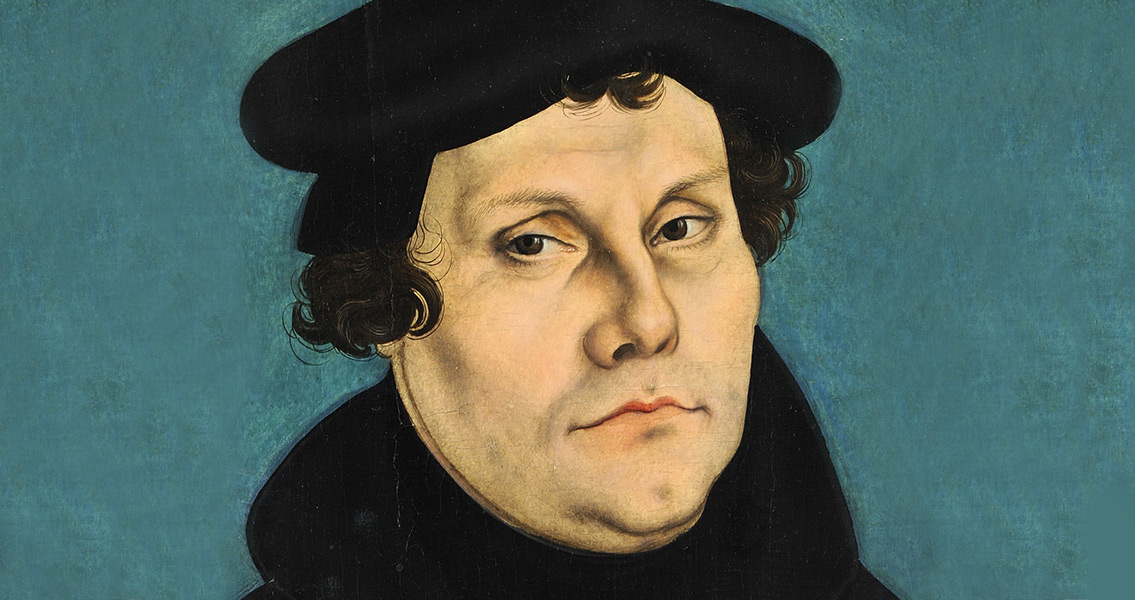<![CDATA[The Protestant Reformation started on 31st October 1517, when Martin Luther walked up to the door of the Castle Church in Wittenberg, Germany, and nailed a copy of the 95 Theses to it. His actions and criticism of the Catholic Church started a revolution that went on to drastically change European history. Luther was born in 1483 in Eisleben, Germany, which was then a part of the Holy Roman Empire. His large family was financially comfortable due to his father, a successful German businessman. At the age of 13 Luther attended a school run by the Brethren of the Common Life in Magdeburg. The Brethren were focused on advocating personal piety, which is likely where Luther developed his interest in the monastic life. Hans Luther urged his son to pursue a career in law, and in 1501, at the age of eighteen, Martin Luther enrolled at the University of Erfurt, the most prestigious university in Germany at the time. Having followed a fairly standard study programme focused around typical academic subjects, Luther graduated with a Master's degree in 1505. That July a near death experience made Luther reconsider the path he was taking in life. Caught in a vicious thunderstorm, he decided that survival would be a sign from God that he should dedicate himself to the church. Luther of course survived, and later in 1505 joined an Augustinian monastery. A mixture of advanced academic knowledge with deep piety proved fundamental for Luther in the development and then expression of his revolutionary ideas. Luther was living in a time when cynicism of the Catholic Church's interpretation of the Bible was already stirring. His main achievement was to refine these arguments, and then have the bravery to publicly confront the Catholic hierarchy with them. Of particular disgust to Luther was the Church's practice of indulgences - asking for payment in exchange for the forgiveness of sins. In 1517 a Dominican Priest called Johann Tetzel, who was under commission from the Archbishop of Mainz and Pope Leo X, was performing a fundraising campaign in Germany to pay for the renovation of St. Peter's Basilica in Rome. Tetzel was essentially selling pardons, meaning sinners didn't need to repent. After finding out about this practice, Luther quickly wrote the 95 Theses. The work made three main arguments against the practice of selling indulgences. Firstly, the Church could afford to pay for the renovations out of its own funds. Selling salvation was an example of exploiting poor people. Secondly, he claimed the Pope had no control over purgatory, and thus couldn't sell salvation from it. If he did have control over purgatory, surely the moral course of action would have been to liberate everyone and not just those who were willing to pay for the privilege. Finally, selling indulgences gave people a false sense of security. If people thought they could simply buy salvation, they would stop trying to live a moral live. Copies of the 95 Theses were quickly translated and distributed, with one eventually arriving in Rome. The Vatican tried to convince Luther to change his views, and when he refused to do so, excommunicated him in 1521. That same year Luther also refused to recant to the Holy Roman Emperor Charles V. The Emperor issued the Edict of Worms in response, declaring Luther an outlaw and heretic who could be killed without punishment or consequence. The term 'Protestant' first came into use in 1529, as a dispute arose between the leaders of German states and the Holy Roman Emperor over the Edict of Worms. Some states argued that they should not be obliged to follow the edict, as their loyalty was to the Church rather than the Emperor. These states were designated Protestants by their loyalist opponents. The term evolved to be applied to anyone who wanted reform in the church. The Reformation movement spread throughout Europe in the following centuries, leading to wars, debates and revolution. Indeed, even now there are places were the divisions it spawned are still tangible Luther's bold actions on the 31st October were intended to start a debate about the practices of the Catholic Church. They resulted in decades of upheaval and change, not just for the church, but Western society as a whole.]]>
Luther Starts the Protestant Reformation
